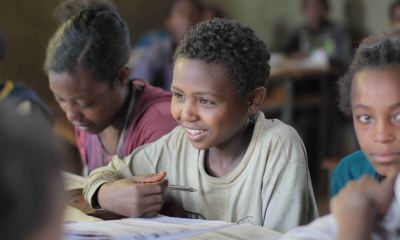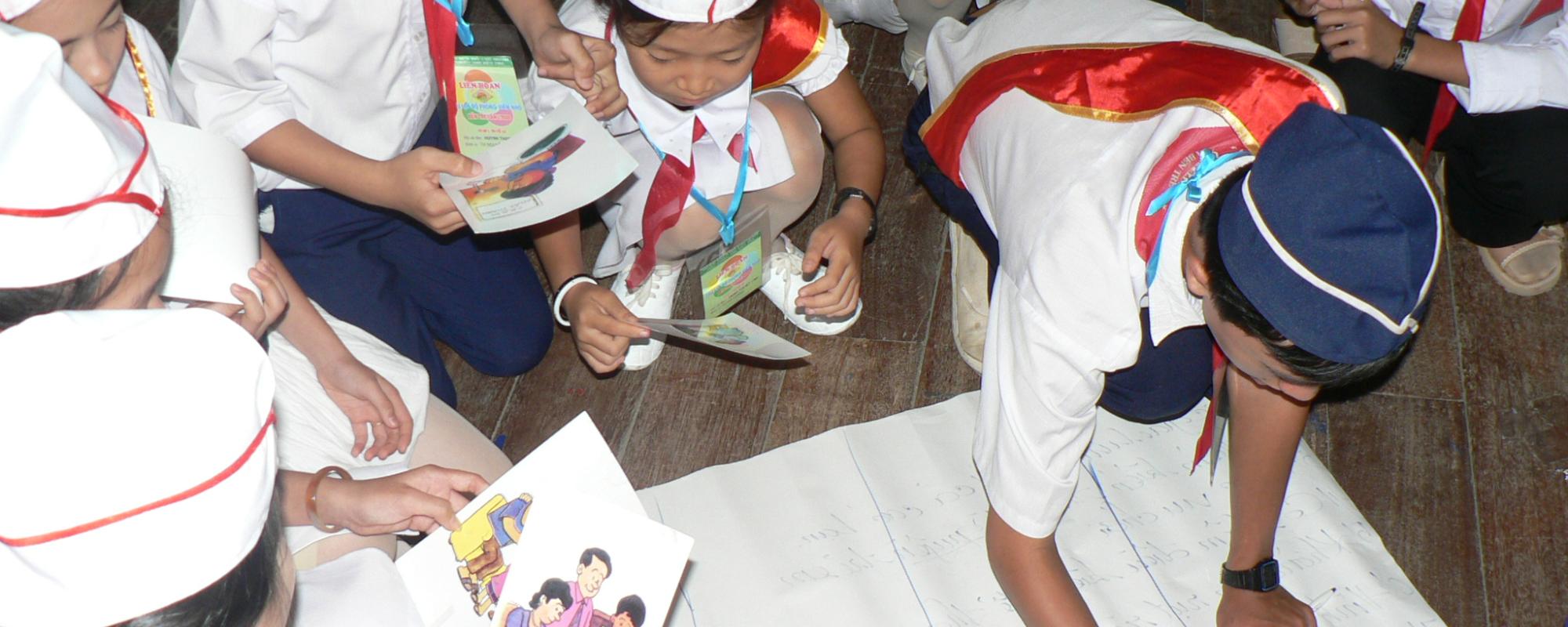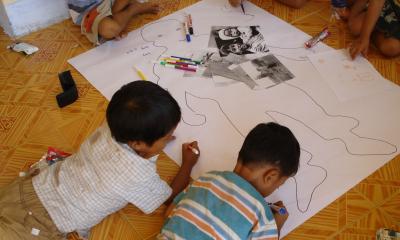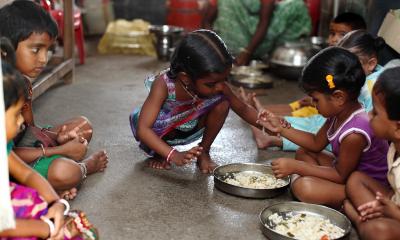
12 years of quality education for all children and promoting lifelong learning opportunities is fundamental to young people reaching their full potential, as set out in Sustainable Development Goal 4.
Over the last two decades, we have seen significant improvement in access to education across all our study countries, with vastly increased school and university enrolment rates and reduced overall levels of student dropout.
Yet despite these gains, across many developing countries, shockingly low levels of achievement in basic foundational skills, such as literacy and numeracy persist . Young Lives evidence also shows that overall learning outcomes remain very low, with significant and widening inequalities in educational achievements both across and within our study countries. Comparing maths test scores of our younger and older cohorts in Peru and Vietnam, equivalent skills in Ethiopia and India appear to be worsening.
- There has been a significant improvement in access to education across all study countries over the last two decades. More young people are completing secondary school and going into higher education, with students progressing faster through the school system. However, in Ethiopia, almost three quarters of 22-year-olds had not completed (upper) secondary school.
- Despite these gains, overall learning outcomes remain very low, with significant educational inequalities both across and within our study countries. Addressing the learning crisis involves delivering on every child’s right to basic foundational skills.
- Inequalities in skills and learning appear very early in life, with those from the poorest households, in rural areas, and from minority status backgrounds consistently underperforming.
- Early childhood stunting due to malnutrition has a significantly negative impact on important cognitive skills, such as vocabulary and basic mathematics, with long term consequences for socio-emotional skills such as self-esteem, self-efficacy and agency.
- Investment in quality early child development programmes is important for skills development and later educational outcomes; preschool attendance has direct benefits for language development, school enrolment and grade progression, right through to completing secondary school.
- Adolescents from disadvantaged backgrounds face formidable obstacles to stay in school and make progress in their learning, especially when needing to combine school with care and work responsibilities. Poor quality teaching, inadequate school infrastructure and inaccessibility, violence in schools and inflexible school systems all present significant barriers that affect young people from poor households the most.
- Gender gaps in learning emerge more strongly at around age 12 and continue to widen into early adulthood; interestingly girls are not always disadvantaged. Gender differences depend on country context and other intersecting inequalities; pro-male aspirations and learning outcomes in India, contrast markedly with pro-female aspirations and learning outcomes in Vietnam. In Round 7, in India, secondary school completion has improved, with gender disparities closing. However, young women remain underrepresented in higher education, especially those from disadvantaged backgrounds. In Peru, secondary education completion has also improved, becoming almost universal (over 90%), yet inequalities persist, with significant gaps in access to university affecting those from disadvantaged socio-economic backgrounds.
- Girls who drop out of school, especially in rural areas and among poorer households, are much more likely to be married off early by their parents, than those who stay in education. Likewise, early motherhood puts girls at much greater risk of dropping out of school or lower education outcomes.
- COVID-19 exacerbated inequalities in education following the closure of schools and universities and disrupted classes; those from poor households and rural communities, especially vulnerable girls and young women, were hardest hit. Increased burdens of unpaid care and domestic work reduced the time that girls and young women had to study and increased their risk of dropping out of school or university.
- Persistent learning gaps, worsened by a digital divide in online learning, has left a substantial proportion of vulnerable young people at risk of being left behind and never returning to the classroom.
12 years of quality education for all children and promoting lifelong learning opportunities is fundamental to young people reaching their full potential, as set out in Sustainable Development Goal 4.
Over the last two decades, we have seen significant improvement in access to education across all our study countries, with vastly increased school and university enrolment rates and reduced overall levels of student dropout.
Yet despite these gains, across many developing countries, shockingly low levels of achievement in basic foundational skills, such as literacy and numeracy persist . Young Lives evidence also shows that overall learning outcomes remain very low, with significant and widening inequalities in educational achievements both across and within our study countries. Comparing maths test scores of our younger and older cohorts in Peru and Vietnam, equivalent skills in Ethiopia and India appear to be worsening.
- There has been a significant improvement in access to education across all study countries over the last two decades. More young people are completing secondary school and going into higher education, with students progressing faster through the school system. However, in Ethiopia, almost three quarters of 22-year-olds had not completed (upper) secondary school.
- Despite these gains, overall learning outcomes remain very low, with significant educational inequalities both across and within our study countries. Addressing the learning crisis involves delivering on every child’s right to basic foundational skills.
- Inequalities in skills and learning appear very early in life, with those from the poorest households, in rural areas, and from minority status backgrounds consistently underperforming.
- Early childhood stunting due to malnutrition has a significantly negative impact on important cognitive skills, such as vocabulary and basic mathematics, with long term consequences for socio-emotional skills such as self-esteem, self-efficacy and agency.
- Investment in quality early child development programmes is important for skills development and later educational outcomes; preschool attendance has direct benefits for language development, school enrolment and grade progression, right through to completing secondary school.
- Adolescents from disadvantaged backgrounds face formidable obstacles to stay in school and make progress in their learning, especially when needing to combine school with care and work responsibilities. Poor quality teaching, inadequate school infrastructure and inaccessibility, violence in schools and inflexible school systems all present significant barriers that affect young people from poor households the most.
- Gender gaps in learning emerge more strongly at around age 12 and continue to widen into early adulthood; interestingly girls are not always disadvantaged. Gender differences depend on country context and other intersecting inequalities; pro-male aspirations and learning outcomes in India, contrast markedly with pro-female aspirations and learning outcomes in Vietnam. In Round 7, in India, secondary school completion has improved, with gender disparities closing. However, young women remain underrepresented in higher education, especially those from disadvantaged backgrounds. In Peru, secondary education completion has also improved, becoming almost universal (over 90%), yet inequalities persist, with significant gaps in access to university affecting those from disadvantaged socio-economic backgrounds.
- Girls who drop out of school, especially in rural areas and among poorer households, are much more likely to be married off early by their parents, than those who stay in education. Likewise, early motherhood puts girls at much greater risk of dropping out of school or lower education outcomes.
- COVID-19 exacerbated inequalities in education following the closure of schools and universities and disrupted classes; those from poor households and rural communities, especially vulnerable girls and young women, were hardest hit. Increased burdens of unpaid care and domestic work reduced the time that girls and young women had to study and increased their risk of dropping out of school or university.
- Persistent learning gaps, worsened by a digital divide in online learning, has left a substantial proportion of vulnerable young people at risk of being left behind and never returning to the classroom.




